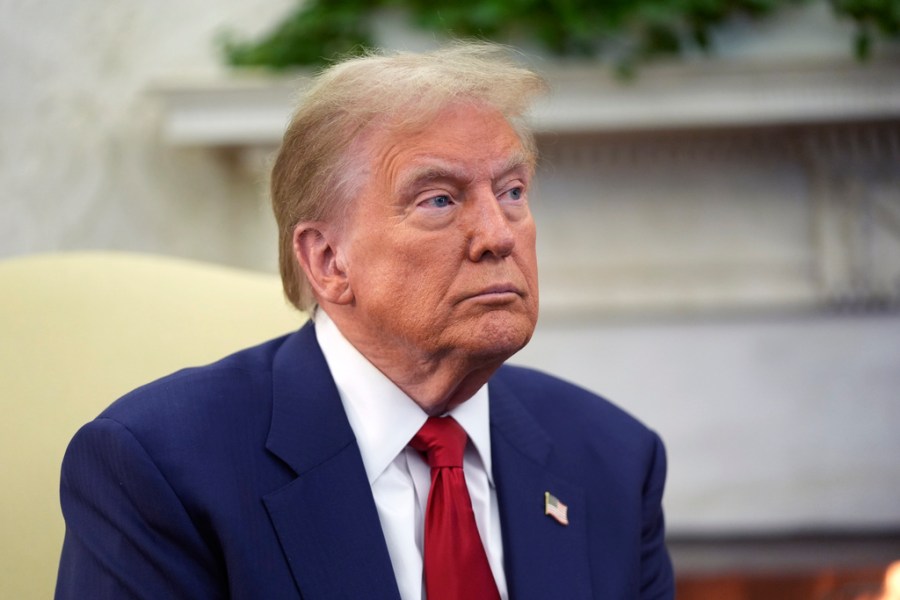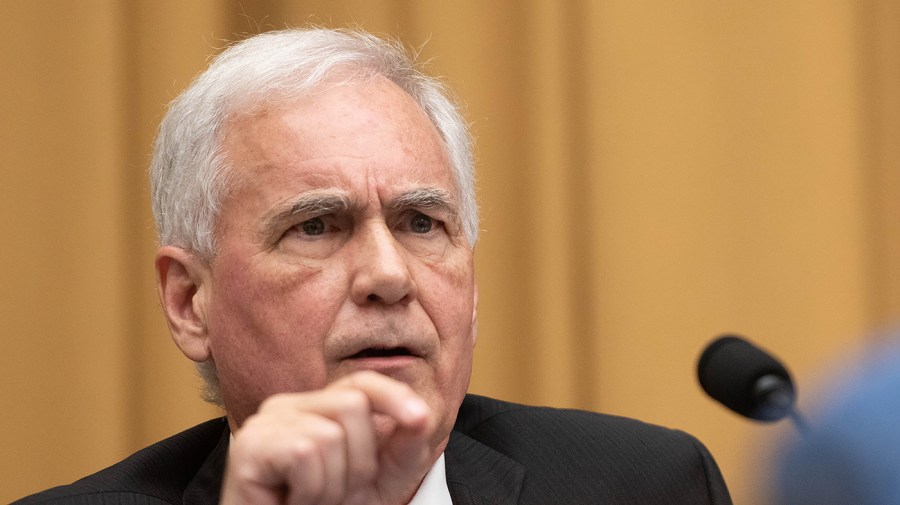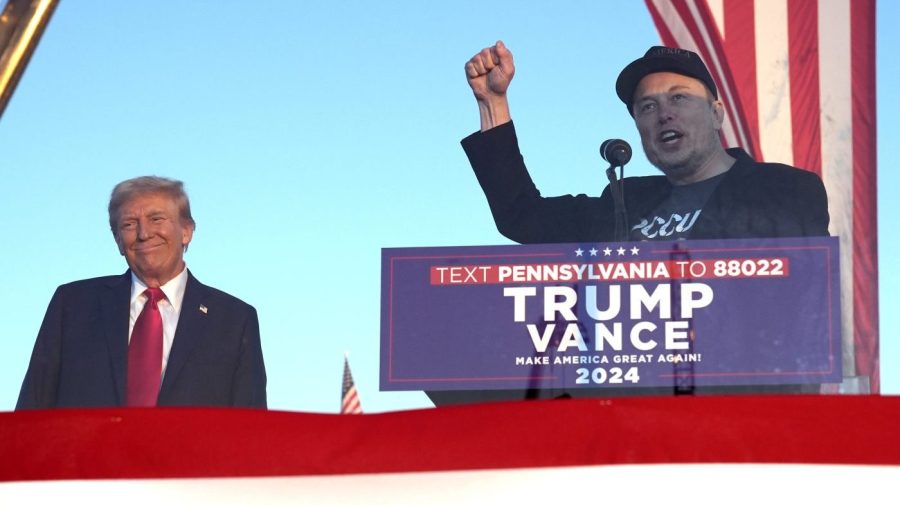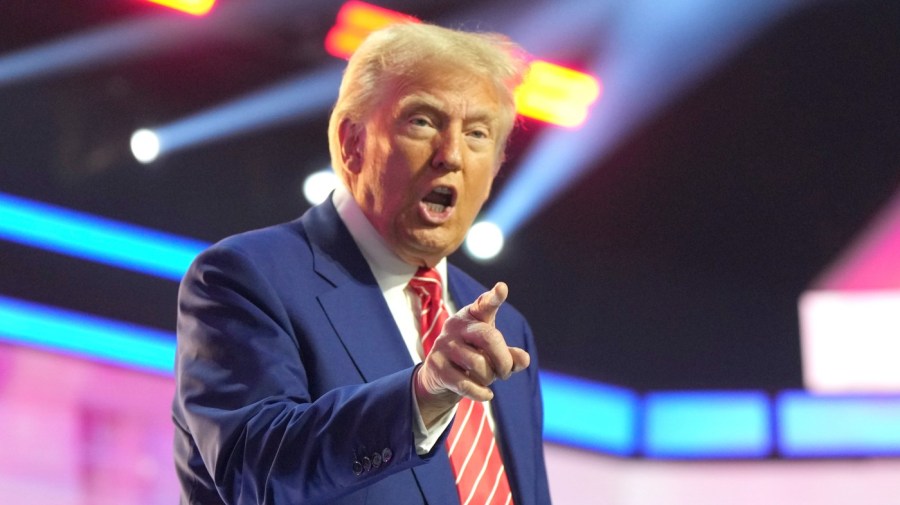
5 takeaways from Trump’s ‘Meet the Press’ interview
President-elect Trump’s first sit-down interview since winning a second White House term aired Sunday, giving the public a view into his mindset as he prepares to return to office.
Trump spoke with “Meet the Press” moderator Kristen Welker, and the two discussed Trump’s plans for his first day in office, some of his controversial Cabinet choices, and whether he would like the Justice Department to go after his critics and rivals.
Here are five takeaways from the interview.
Questions about retribution
One of the biggest questions facing Trump is whether he will use the Justice Department to go after critics and political rivals, something he has previously spoken about as he faced criminal charges of his own.
In his interview with NBC, Trump indicated he would not explicitly order his appointees to go after his rivals, even as he continued to attack special counsel Jack Smith and again suggested lawmakers who investigated the Jan. 6, 2021, attack on the Capitol, like former Rep. Liz Cheney (R-Wyo.), should be in jail.
Welker asked Trump about Kash Patel, his choice to lead the FBI, who has spoken about the need to target the “deep state.”
“If they think that somebody was dishonest or crooked or a corrupt politician, I think he probably has an obligation to do it,” Trump said.
“Are you going to direct him to do it?” Welker asked.
“No. Not at all. Not at all,” Trump responded.
He similarly said he would leave it up to his nominee for attorney general, Pam Bondi, to determine whether to prosecute figures like special counsel Jack Smith, who led the investigations into Trump in recent years.
“I will say this, no, I’m not doing that unless I find something that I think is reasonable, but that’s not going to be my decision,” Trump said. “That’s going to be Pam Bondi’s decision, and, to a different extent, Kash Patel, assuming they’re both there, and I think they’re both going to get approved.”
Trump did suggest he would not specifically go after President Biden, telling Welker he was “not looking to go back into the past. I’m looking to make our country successful.”
Outlining immigration crackdown
Trump made clear during his interview with “Meet the Press” that his vow to deport millions of individuals in the country illegally and, more broadly, reshape the immigration system was not idle talk on the campaign trail.
“You have no choice. First of all, they’re costing us a fortune. But we’re starting with the criminals and we’ve got to do it. And then we’re starting with others, and we’re going to see how it goes,” Trump said.
The president-elect echoed comments from his appointed border czar, Tom Homan, saying families with mixed immigration status could be deported together to avoid being separated.
Trump said he still intends to end birthright citizenship, something he previously listed as a task for his first day in office. But doing so would almost certainly face legal challenges, as the 14th Amendment says “all persons born in the United States are citizens.”
“Well, we’re going to have to get it changed,” Trump said on NBC. “We’ll maybe have to go back to the people. But we have to end it. We’re the only country that has it, you know.”
Trump did signal an openness to finding a way for Dreamers, undocumented individuals brought to the U.S. at a young age, to stay in the United States.
“The Dreamers are going to come later, and we have to do something about the Dreamers because these are people that have been brought here at a very young age. And many of these are middle-aged people now,” Trump said. “They don’t even speak the language of their country. And yes, we’re going to do something about the Dreamers.”
A glimpse at Day 1 and beyond
Trump’s interview was his first major sit-down since winning the election, and it offered insight into what the president-elect intends to prioritize upon taking office.
Trump told Welker he would likely act on his first day to pardon individuals involved in the Jan. 6, 2021, storming of the Capitol, including those who have pleaded guilty.
He repeated his mantra that he would “drill, baby, drill,” a nod to his plans to roll back regulations and increase drilling for oil.
And he doubled down on his pledge to carry out mass deportations upon taking office, despite the financial and logistical hurdles.
Trump also gave some insights into other policy views likely to shape his second term. He told Welker he would not raise the age requirement for Social Security or Medicare, that he was inclined to leave current conditions around access to abortion pills as they are, and that he agreed the federal minimum wage was a “low number.”
He also left open the possibility of replacing ObamaCare “if we find something better,” and suggested the U.S. could look to leave the NATO alliance if other members do not increase their contributions to defense spending.
No guarantees on tariff consequences
Tariffs are a cornerstone of Trump’s proposed economic agenda, and he would not guarantee that they would not increase consumer costs.
“Can you guarantee American families won’t pay more?” Welker asked.
“I can’t guarantee anything. I can’t guarantee tomorrow. But I can say that if you look at my — just pre-COVID, we had the greatest economy in the history of our country,” Trump responded.
For months, the president-elect has pledged to impose blanket tariffs on all imports, a plan economists have warned could spike the cost of goods in the United States and cause companies to pass along increased costs to consumers. But Trump has shrugged off those concerns, claiming the tariffs will cause more companies to do business inside the U.S.
Trump, in recent weeks, threatened tariffs against Canada and Mexico, two of the United States’s biggest trading partners, unless they did more to crack down on the flow of migrants and illegal drugs across the border.
“Tariffs are a — properly used, are a very powerful tool, not only economically, but also for getting other things outside of economics,” Trump said.
Standing by controversial picks
Trump has already seen one Cabinet nominee withdraw from consideration in Matt Gaetz, his first choice to serve as attorney general, but he offered praise for others likely to face intense scrutiny from the Senate.
The interview took place as Pete Hegseth, Trump’s pick to lead the Pentagon, is facing a steep climb to get confirmed amid allegations of sexual misconduct and excessive drinking at his previous jobs.
“He’s a very smart guy. I’ve known him through Fox, but I’ve known him for a long time,” Trump said of Hegseth. “And he’s basically a military guy. I mean I — any time I talk to him, all he wants to talk about is the military. He’s a military guy.”
Trump was asked about Patel, his choice to lead the FBI, and his past criticism of Democrats and journalists whom he considered parts of the “deep state.” The president-elect said he felt confident Patel would get confirmed.
Trump offered his support for Robert F. Kennedy Jr., his choice to lead the Department of Health and Human Services. Kennedy is likely to be grilled over his antivaccine rhetoric and other controversial views on raw milk and fluoride.
Trump, in the interview, said Kennedy would look into any connection between vaccines and autism, even though there is no evidence of a link between the two.
“He’s not going to upset any system,” Trump said of Kennedy. “He’s not looking to reinvent the wheel totally. But when you look at the numbers, we really don’t have a very healthy country.”



